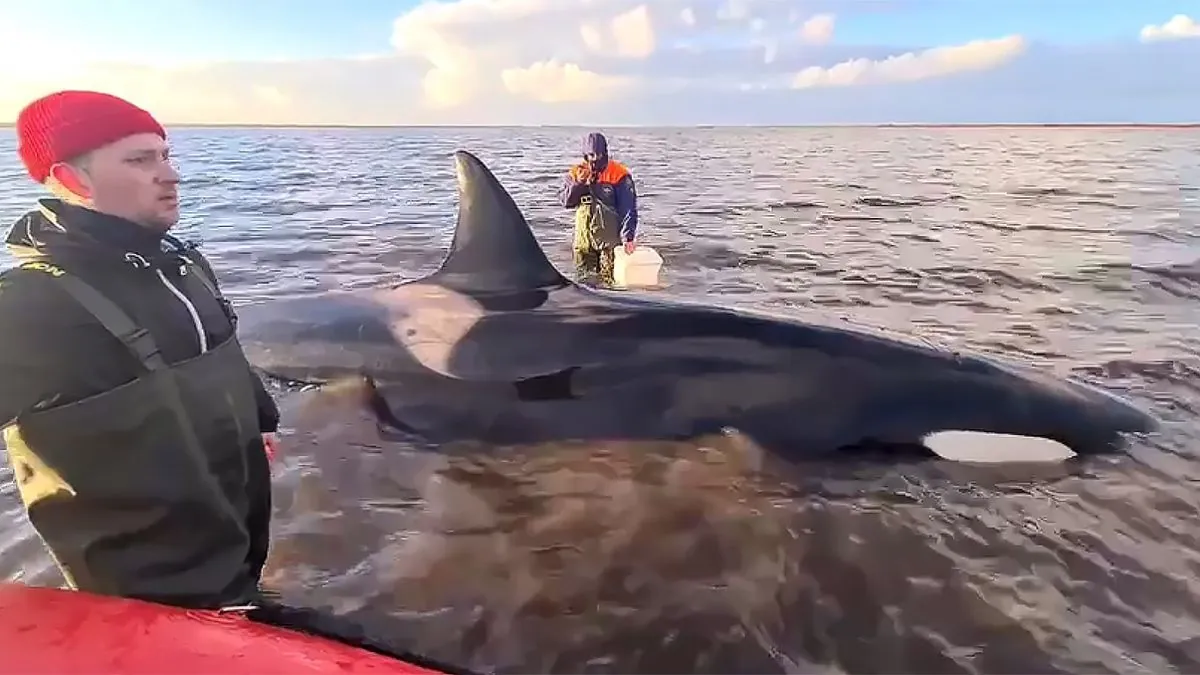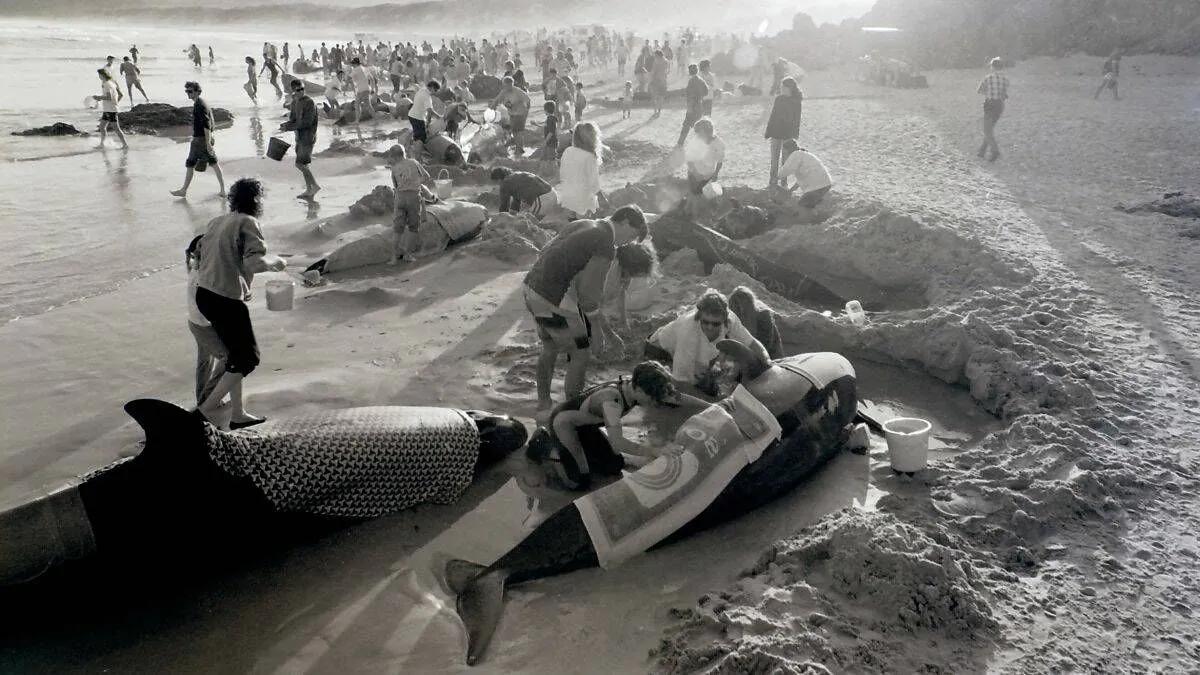Stranded Orca Family Rescued from Russian Far East Estuary
Four killer whales, stranded in a Kamchatka Peninsula estuary, were successfully guided to open sea after initial rescue attempts failed. Researchers and volunteers worked tirelessly to save the orcas.

In a remarkable rescue operation, a family of four orcas, also known as killer whales, has been successfully guided back to the open sea after becoming stranded in an estuary on Russia's Kamchatka Peninsula. The incident, which occurred in early October 2024, involved two adult orcas and two calves.
Orcas, the largest members of the dolphin family, are known for their intelligence and complex social structures. These apex predators are found in all oceans, from polar regions to tropical seas, and can grow up to 32 feet in length, weighing up to 6 tons. Their distinctive black and white coloration makes them easily recognizable.
The rescue effort was a collaborative endeavor involving researchers and volunteers who worked tirelessly to keep the stranded whales alive. At one point, the team had to douse the orcas with water to prevent dehydration and overheating, as these marine mammals are not adapted to prolonged exposure out of water.

An initial attempt to guide the orcas to safety during high tide proved unsuccessful, with the animals missing the narrow exit from the estuary. However, perseverance paid off, and on Friday, October 4, 2024, the rescue team successfully directed the orca family into deeper waters, allowing them to return to their natural habitat.
Orcas are highly social creatures, living in stable matrilineal family groups called pods. They possess a diverse vocal repertoire, including clicks, whistles, and pulsed calls, which they use for communication and echolocation. Different orca populations have distinct vocalizations, similar to dialects in human languages.
While the exact reasons for whale strandings are not fully understood, such incidents are not uncommon. Orcas, like other cetaceans, rely on echolocation to navigate, which can be disrupted by various factors including changes in magnetic fields, illness, or disorientation in shallow waters.
The Kamchatka Peninsula, where the stranding occurred, is known for its rich marine biodiversity. The region's waters are home to various whale species and serve as important feeding grounds for these marine mammals.
"After one unsuccessful rescue attempt in which they missed the narrow exit during high tide, the orcas managed to leave the estuary on Friday."
This successful rescue highlights the importance of swift and coordinated action in marine mammal strandings. It also underscores the need for continued research and conservation efforts to protect these remarkable creatures and their habitats.
Orcas face various threats in the wild, including pollution, habitat loss, and in some regions, population decline. With an average lifespan of 50-80 years for females and 30-50 years for males in the wild, these intelligent animals play a crucial role in marine ecosystems as top predators.
The rescue of this orca family serves as a reminder of the intricate connection between humans and marine life, and the responsibility we bear in safeguarding the oceans and their inhabitants for future generations.


































